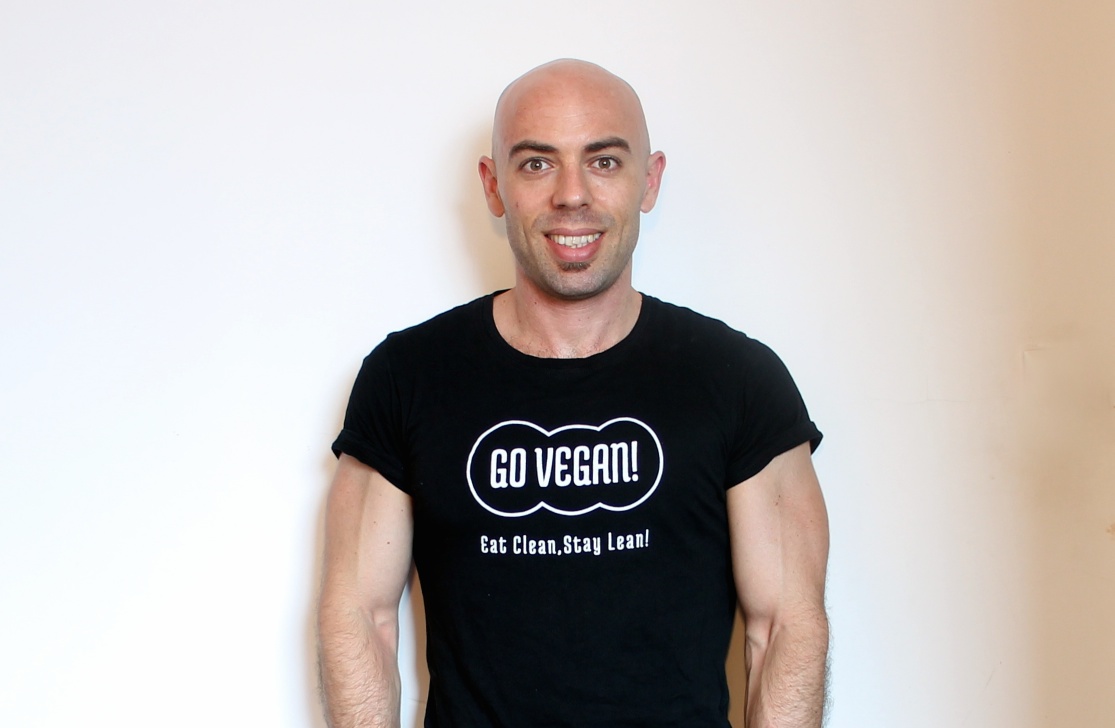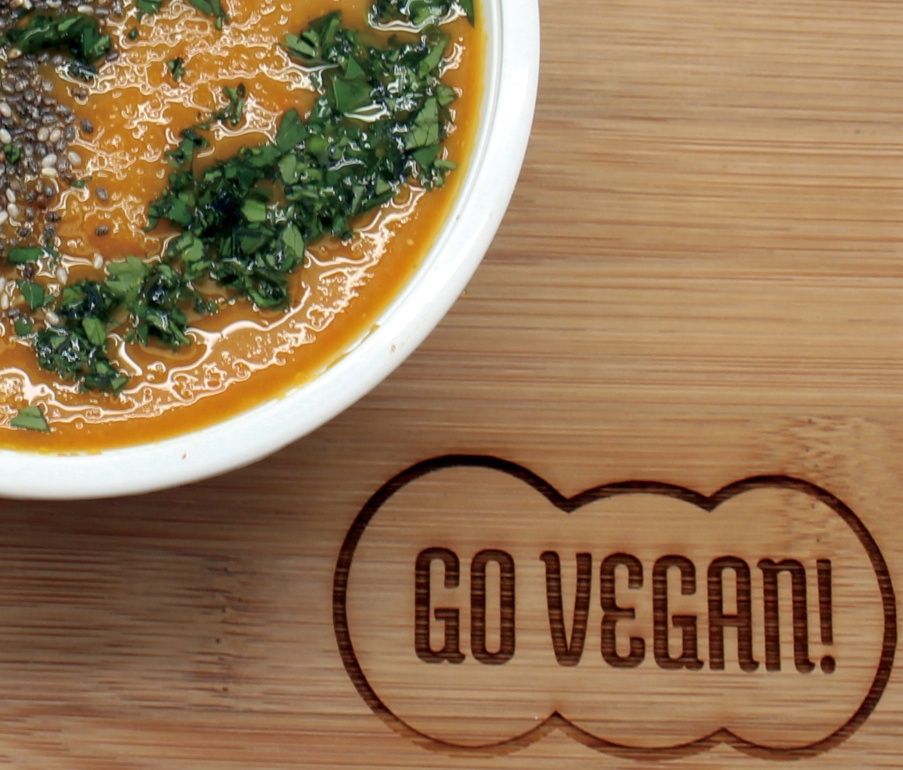Globally, the health food trend has changed how people think about food and the decisions they make about what to put in their bodies. A lot of attention has been placed on greater environmental awareness, as well as getting a balanced diet by including “superfoods” into regular meals.
While comprehensive lists of superfoods vary, there are certain consistent definitions. The website health.com defines superfoods as being “nutrient powerhouses that pack large doses of antioxidants, polyphenols, vitamins and minerals,” the benefits of which can “reduce the risk of chronic disease and prolong life.” Notably, few items are meats; most fall in the vegetables, grains and legumes categories – edibles mostly associated with vegans.
The vegan diet is often thought of as being complicated and restrictive, necessitating hours to prepare meals with specialized produce and leading to general weakness and lack of energy. Add an assumed constant hunger and the lifestyle seems overwhelming. Yet a thriving community of vegans lives right here in the PRD, a fact that is astonishing not only because of the presumed effort this kind of lifestyle requires, but also because it’s China, a place where most locals commonly say “meat” when asked their favorite kind of cuisine. We spoke to some of the delta’s trailblazers to find out how they maintain their vegan lifestyle and eat a balanced diet.
Mike Jordan

New to Shenzhen and China, Jordan’s experience being vegan mirrors others living a vegetarian or vegan lifestyle for the first time in Asia. With limited Chinese, he found ordering in restaurants a major challenge. He recalls asking for a dish without meat, fish, eggs or milk and being met with vacant stares. Once, he was given an eggplant dish, but after two bites, realized there was fish inside. The confused waitress’s response to his complaint: “But fish isn’t meat right?”
Though initially hugely frustrated, he acknowledges that as a foreigner in China he can’t expect people to understand him if he doesn’t speak the language. After losing a lot of weight and learning some simple Mandarin phrases, he is much more comfortable with navigating menus. He says he still gets little “gifts” of meat put on his food, but with some resourcefulness, can maintain a balanced diet.
“I still love to cook at home and do so most of the time. I can get everything I need in China, and you are always certain about what has gone into your dish. Unfortunately, there is always a small sense of ambiguity in restaurants, and even some soy milk has cow’s milk powder in it!” Jordan says.
More than anything else, he took up veganism because it fits into his philosophy of life. “I think it is a way of embracing life. It’s funny when people think it must be too difficult. It’s really just a different way of thinking. All you need is to be a little more creative.”
Siobhan Lumsden

Born in Scotland and educated in South Africa, Siobhan Lumsden has lived in a meat-eating culture most of her life. As a child, however, Siobhan didn’t like meat and developed a bizarre cheese phobia, prompting her to become vegetarian. After moving to China, she committed to a vegan existence.
The challenge was finding ways to balance her diet, since always ordering the same thing in restaurants wasn’t providing her with enough nutrients. She points out this can also be true of a meat eater’s diet. However, since discovering online shopping in China, with sites such as Nogogo.com and ShenzhenEat.com that deliver food and promote restaurants catering to vegan and vegetarian diets, she says her new direction has become much easier.
Lumsden thinks that what is missing in China is a more health-conscious attitude. “It would be great if we could order brown rice and not have vegetables cooked with meat or in cheap, overused oil. It’s always disappointing if I can only order white rice and fried cabbage or something,” she says.
For ingredients she can’t order online or pick up from local produce shops, she travels to Just Green in Hong Kong. There she stocks up on vegan protein powder, quinoa and other assorted grains and pulses.
There are also specialized vegan vendors who have turned their lifestyle into a profitable business in the PRD. Stephanie Morris’ love for vegan smoothies blossomed into ice cream business Nomasté. Hanan Yariv’s passion for fine cooking and creative hummus dishes made him a sought-after caterer for select events with his The Healthy Chef foods, and Asher Marad started Guangzhou’s Go Vegan!
Asher Marad

Before veganism, Marad ate whatever he liked, while remaining committed to maintaining a fit and healthy body. Over the years he experimented with various diets, trying to find the right one for his body, one which could give him the best balance between health, nutrition and sustainability.
He realized, while deepening his knowledge of nutrition, that he needed diversity in what he ate; more combinations than a ‘regular’ diet could provide. After much research, Marad chose veganism. He believes it’s the best decision he ever made.
The results he got after a few months inspired Marad to become a personal trainer and also create healthy, well-balanced meals for his clients, who often complained they had no idea how to maintain the correct balance of nutrition for the workouts they were doing. He began making meals that were simple but packed full of everything their bodies needed.
This act of practical kindness has expanded into a sustainable business, with a solid client base that he prepares eating plans for, a shop where he sells his base produce and a restaurant.
Aside from the vegan lifestyle being something Marad works hard to promote, the moral and environmental issues surrounding a plant-based versus meat-based lifestyle are also important to him. Marad encourages others to do more research into the effects raising livestock is having on our planet and ecosystems. He also cites the moral issues of how these animals are treated as being a cause for his choice to “go vegan” – a reason many vegans cite for their conversion.
Restaurants and companies providing vegan food:
1. Veggie Box, Dongguan  [WeChat: Veggie-Box]
[WeChat: Veggie-Box]
2. Go Vegan, Guangzhou [WeChat: govegan101]
3. PURESUE, Guangzhou [WeChat: PURESUE]
4. Yvonne’s Raw Kitchen, Zhongshan [WeChat: yvonneLai]
5. Nomasté Vegan Nice-cream, Shenzhen [WeChat: mee-hao]
6. The Healthy Chef (THC), Shenzhen [WeChat: THCFOOD]
7. Harmonious Vegan Tea Café, Shenzhen [WeChat: adrianruan]
8. Taste Green, Shenzhen [WeChat: tgsalad]
9. Suhe Vegetarian Lifestyle, Zhuhai [WeChat: shss1859]
10. Element Fresh [WeChat: element_fresh]
Organic farms
1. V-Good Hydroponics [Call: 0760-8589 0033]
2. Unity Manor Organic Agriculture [WeChat: unity727481088]
3. Eden Foods [WeChat: edenfoodschina]






















0 User Comments